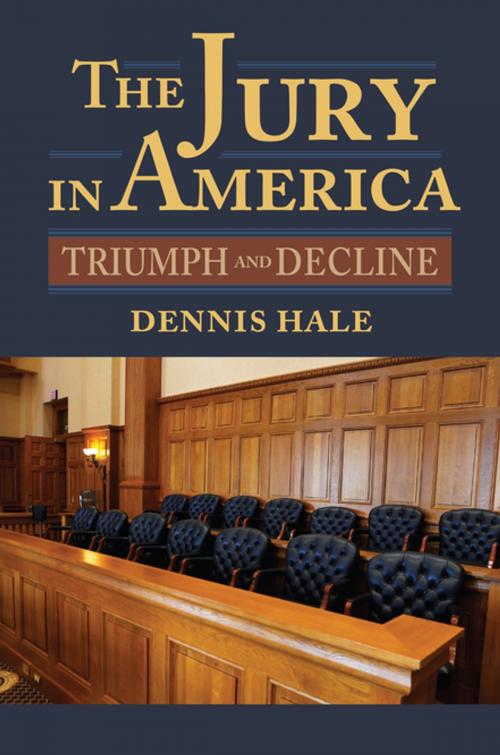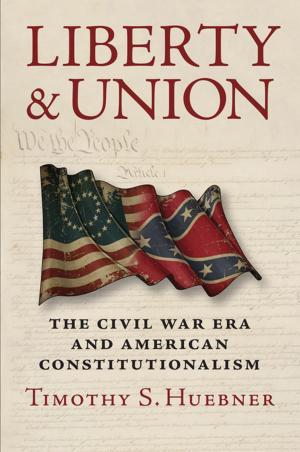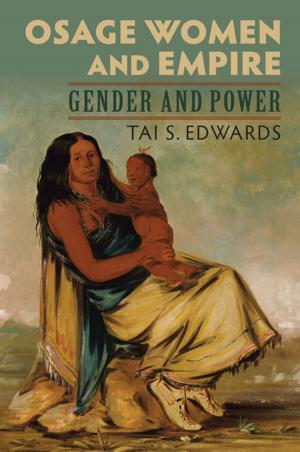The Jury in America
Triumph and Decline
Nonfiction, Reference & Language, Law, Jury, History, Americas, United States, 20th Century, Social & Cultural Studies, Political Science, Government| Author: | Dennis Hale | ISBN: | 9780700622016 |
| Publisher: | University Press of Kansas | Publication: | February 3, 2016 |
| Imprint: | University Press of Kansas | Language: | English |
| Author: | Dennis Hale |
| ISBN: | 9780700622016 |
| Publisher: | University Press of Kansas |
| Publication: | February 3, 2016 |
| Imprint: | University Press of Kansas |
| Language: | English |
The jury trial is one of the formative elements of American government, vitally important even when Americans were still colonial subjects of Great Britain. When the founding generation enshrined the jury in the Constitution and Bill of Rights, they were not inventing something new, but protecting something old: one of the traditional and essential rights of all free men. Judgment by an “impartial jury” would henceforth put citizen panels at the very heart of the American legal order. And yet at the dawn of the 21st century, juries resolve just two percent of the nation's legal cases and critics warn that the jury is “vanishing” from both the criminal and civil courts. The jury's critics point to sensational jury trials like those in the O. J. Simpson and Menendez cases, and conclude that the disappearance of the jury is no great loss. The jury’s defenders, from journeyman trial lawyers to members of the Supreme Court, take a different view, warning that the disappearance of the jury trial would be a profound loss.
In The Jury in America, a work that deftly combines legal history, political analysis, and storytelling, Dennis Hale takes us to the very heart of this debate to show us what the American jury system was, what it has become, and what the changes in the jury system tell us about our common political and civic life. Because the jury is so old, continuously present in the life of the American republic, it can act as a mirror, reflecting the changes going on around it. And yet because the jury is embedded in the Constitution, it has held on to its original shape more stubbornly than almost any other element in the American regime. Looking back to juries at the time of America’s founding, and forward to the fraught and diminished juries of our day, Hale traces a transformation in our understanding of ideas about sedition, race relations, negligence, expertise, the responsibilities of citizenship, and what it means to be a citizen who is “good and true” and therefore suited to the difficult tasks of judgment.
Criminal and civil trials and the jury decisions that result from them involve the most fundamental questions of right, and so go to the core of what makes the nation what it is. In this light, in conclusion, Hale considers four controversial modern trials for what they can tell us about what a jury is, and about the fate of republican government in America today.
The jury trial is one of the formative elements of American government, vitally important even when Americans were still colonial subjects of Great Britain. When the founding generation enshrined the jury in the Constitution and Bill of Rights, they were not inventing something new, but protecting something old: one of the traditional and essential rights of all free men. Judgment by an “impartial jury” would henceforth put citizen panels at the very heart of the American legal order. And yet at the dawn of the 21st century, juries resolve just two percent of the nation's legal cases and critics warn that the jury is “vanishing” from both the criminal and civil courts. The jury's critics point to sensational jury trials like those in the O. J. Simpson and Menendez cases, and conclude that the disappearance of the jury is no great loss. The jury’s defenders, from journeyman trial lawyers to members of the Supreme Court, take a different view, warning that the disappearance of the jury trial would be a profound loss.
In The Jury in America, a work that deftly combines legal history, political analysis, and storytelling, Dennis Hale takes us to the very heart of this debate to show us what the American jury system was, what it has become, and what the changes in the jury system tell us about our common political and civic life. Because the jury is so old, continuously present in the life of the American republic, it can act as a mirror, reflecting the changes going on around it. And yet because the jury is embedded in the Constitution, it has held on to its original shape more stubbornly than almost any other element in the American regime. Looking back to juries at the time of America’s founding, and forward to the fraught and diminished juries of our day, Hale traces a transformation in our understanding of ideas about sedition, race relations, negligence, expertise, the responsibilities of citizenship, and what it means to be a citizen who is “good and true” and therefore suited to the difficult tasks of judgment.
Criminal and civil trials and the jury decisions that result from them involve the most fundamental questions of right, and so go to the core of what makes the nation what it is. In this light, in conclusion, Hale considers four controversial modern trials for what they can tell us about what a jury is, and about the fate of republican government in America today.















